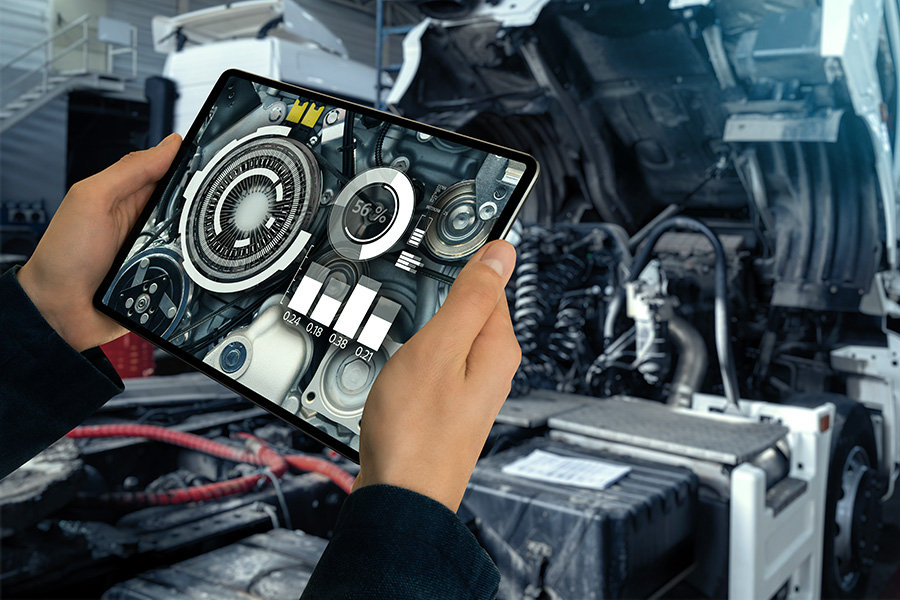Logistics
Warehousing & Fulfillment
Transportation
E-commerce
E-commerce Fulfillment Services
Lease & Maintenance
Semi Trucks
Supply Chain Technology
Logistics
E-commerce
Lease & Maintenance
Buy Used Trucks

Purchasing a used commercial truck can be a significant investment for businesses in various industries. Whether you're expanding your fleet or starting a new venture, buying a pre-owned truck can offer substantial cost savings. However, it is crucial to thoroughly evaluate several key factors before making a decision.
In this article we’ll look at some of the most critical considerations to ensure you make an informed purchase when buying a used commercial truck.
Vehicle History and Maintenance Records: The first and foremost factor to consider is the vehicle's history and maintenance records. Obtain a comprehensive vehicle history report to gain insights into its previous ownership, accidents, repairs, and mileage. Thoroughly review maintenance records to assess if the truck has received regular servicing and if any major repairs have been performed. This information helps gauge the truck's overall condition and potential maintenance requirements in the future. Ryder provides history and truck maintenance records for all used commercial vehicles.
Mechanical Condition and Inspection: A thorough mechanical inspection is vital to determine the current condition of the used commercial truck. Engage a qualified mechanic or technician to assess the engine, transmission, suspension, brakes, electrical systems, and other critical components. A comprehensive inspection helps identify any existing or potential mechanical issues, providing an accurate picture of the truck's reliability and performance.
Usage and Mileage: Consider the truck's usage and mileage to estimate its remaining lifespan and potential repair costs. Excessive wear and tear, high mileage, and demanding applications may indicate a higher risk of mechanical problems. While mileage is important, it should be considered alongside the truck's overall condition, maintenance history, and the nature of its previous applications.
Payload and Towing Capacity: Do you need a cargo van, box truck, semi truck, or a trailer? Evaluate the truck's payload and towing capacity based on your specific business requirements. Determine the maximum weight the truck can safely transport or tow, considering your typical cargo or equipment. Ensure that the truck's capabilities align with your operational needs to avoid overloading or straining the vehicle, which can lead to increased maintenance costs and reduced efficiency.
Fuel Efficiency: Fuel costs are a significant expense for commercial truck operators. Assess the fuel efficiency of the used truck by researching its make, model, and engine specifications. Consider factors such as aerodynamics, engine technology, and emissions standards to determine the truck's potential fuel consumption. Opting for a more fuel-efficient truck can provide long-term savings and minimize environmental impact.
Insurance and Warranty: Contact insurance providers to obtain quotes for the used commercial truck you intend to purchase. Some providers, like Ryder, offer insurance coverage and used vehicle warranties. Insurance costs can vary significantly based on factors such as the truck's make, model, age, and intended use. Additionally, inquire about any existing warranties from the truck manufacturer or extended warranties available for purchase. A warranty can provide peace of mind and financial protection against unforeseen repairs.
Buying a used commercial truck requires careful evaluation of various factors to ensure a reliable and cost-effective investment. Conduct thorough research, review maintenance records, and prioritize mechanical inspections to assess the truck's condition. Consider usage, mileage, payload capacity, and fuel efficiency to align the truck's capabilities with your business requirements. Additionally, assess insurance options and warranties. By considering these crucial factors, you can confidently select a used commercial vehicle that meets your operational needs and offers long-term value.